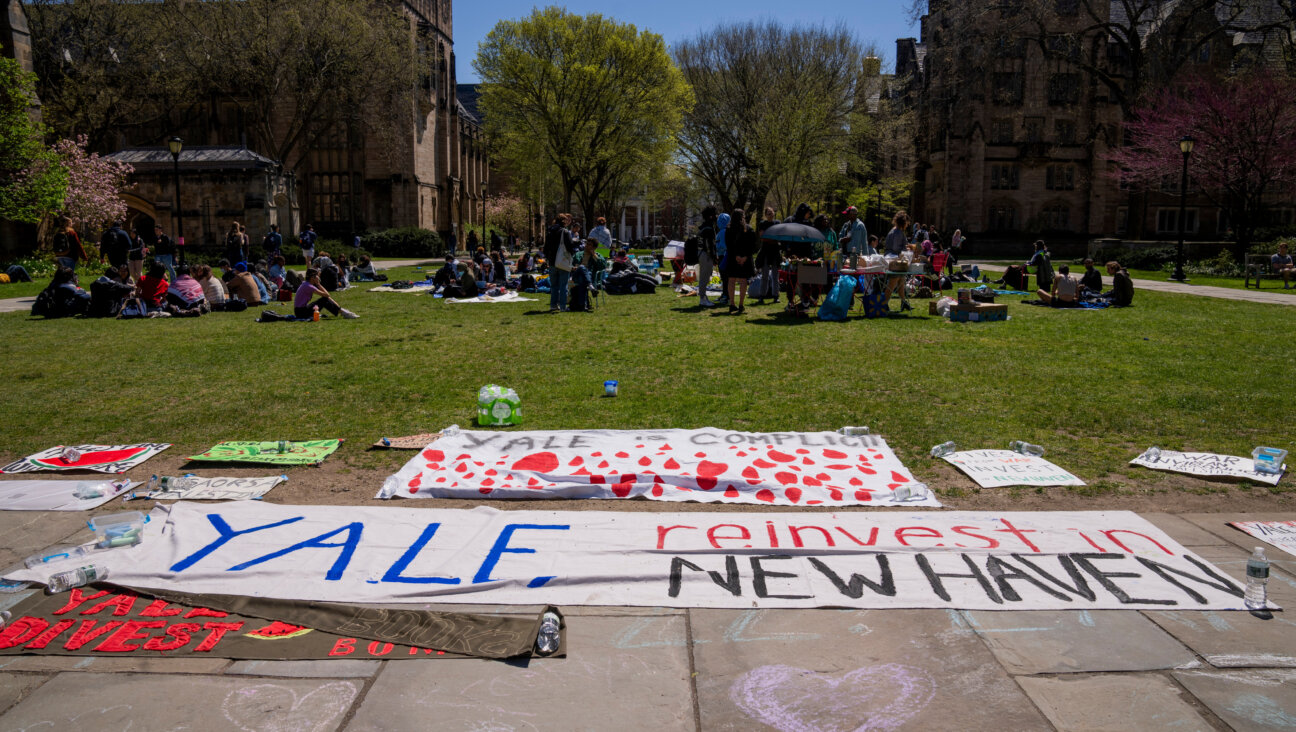Brooking No Disagreement on the Sanctity of Life
The Upper West Side apartment of Shulamith Koenig, the founder of an international human rights organization, could double as a museum of art from around the world. A visual proof of the nomadic nature of her work — she’s visited 42 countries during the last 12 years — Koenig’s living room overflows with Turkish rugs, Japanese sculptures, masks from Mali, tapestries, paintings, vases and, in a display case in the corner, a cast of a woman’s pair of shoes. “Eleanor Roosevelt’s,” she says, referring to the woman who transformed the First Lady’s office into a bully pulpit for human rights around the world. “I feel I am walking in her shoes, with all humility.”
If Koenig is not exactly a household name like Roosevelt, well, give her time. Thirteen years ago, Koenig founded the People’s Movement for Human Rights Education and successfully lobbied the United Nations to declare the years 1995 through 2004 as a decade for advancing human rights education.
It took, she said, “a lot of chutzpah.”
Koenig, 72, appears younger than her years and keeps up a peppy, intellectual patter, quoting diverse sources such as Milton, the Talmud and Alfred Adler. She runs her organization by phone with the no-nonsense prickliness of the native Israeli she is. “Who is this?” she demands of callers, before the speaker has a chance to get a word in edgewise.
In person, however, she is all warmth and smiles. In her conversation with the Forward, she breaks mid-sentence to look her interviewer in the eye. “You seem troubled — is everything okay?” she asks, with genuine concern.
Koenig describes her travels — from Elfasher City, Sudan, to Edmonton, Alberta — where she meets with leaders and grassroots human rights activists. Most recently, her group has been working to establish human rights cities, in which citizens and governing bodies make a decision to organize all municipal functions — law, budgets, allocations, policies — to accord with human rights principles. Twelve cities around the world have joined her movement; Koenig hopes to raise the number to 30. So far, Memphis is the only American city to have expressed interest in joining the ranks. “The interesting thing is Memphis is where Martin Luther King Jr. was killed,” she said. “Some say he was killed when he started speaking for human rights, not just discrimination.”
Koenig says justice ends where the mere struggle for survival begins. “From the beginning, we live in a world where injustice is justice,” Koenig said. “Women all over the world exchange their equality for survival; the poor exchange equality for survival, blacks in white-dominated societies exchange equality for survival.”
Koenig makes a distinction between charity and human rights. “When that child receives the bread [from an assistance program], it’s not charity — charity’s an act of humiliation,” she said. “When a child receives a piece of bread, it’s an act of human rights. When you have such a world, you have peace.”
“Because of Amnesty International, most people think human rights are political and civil issues,” Koenig said. “It breaks my heart. Human rights are also economic, social and cultural.”
Koenig is the first to admit she has her detractors. “If you’re not afraid, you can do anything. Many people don’t like me because of it. They think I’m very aggressive, so on. But I know, I know,” she said, raising her voice and smacking her palm for emphasis, “that I’m right. Every human being has value; this absolute truth is the sanctity of life.”
Born in British-mandate Palestine in 1930, Koenig does not pull any punches when it comes to Israel. “You could say I’m fulfilling the promise that Israel forfeited. Israel promised the world that we would develop a special country, based on human rights. We just didn’t do it. We’ve become oppressors.”
Terrorist attacks don’t override the need to protect the human rights of the Palestinians, Koenig said. “We are giving them little choice,” she said. “Psychologists tell us if you take people’s choices away, they become violent. I was a terrorist, too, as a kid, to kick the British Mandate out.”
Yet isn’t living without fear of terrorism a basic human right? “We have to just live through it,” she said. “We have to eat the fruits of our own deeds.”
Growing up in an infant Israel, “I was very lucky that my parents had Arab friends,” she said. “I had a totally different perspective on life. I played with Arab kids as a child — I couldn’t see a difference.”
In the army, Koenig served as an education officer in the Negev Palmach Brigade as well as a cover girl for an army magazine. She came to the United States in 1950, obtained an industrial engineering degree from Columbia University and returned to Israel in 1956 “divorced and with child,” she said.
On a return trip here, Koenig met her current husband, Jerry, the advertising manager at the Forward. The two married in 1962, had two sons and operated a water systems and irrigation factory in Jerusalem for the next two decades. Koenig was active in the establishment of the left-wing party Ratz, now a part of Meretz, and Peace Now. “From the afternoons to midnight, our factory office was the office for Peace Now,” she said.
Nonetheless, Koenig’s leftist views — including her advocacy of a two-state solution — prompted many Israelis to call her “a traitor,” and in 1983 the Koenigs returned to the United States.
She developed her group, then known as the People’s Decade for Human Rights Education, in 1989. The idea for a decade of education stemmed from a similar program in Israel dedicated to women. “A decade is a kind of strategy,” she said. “It created the political will and set international policy on human rights education. We’ve taken it out of schools and put it out on the street. We’ve taken it to the world on very little money.”
For a secular Jew, Koenig’s approach to human rights has a surprising inspiration: the Torah.
“The Torah has rules, laws… that every human being must learn the law to be able to live in dignity with one another,” she said. “ If everyone in the world knew human rights, we’d have a better world. Everybody must live in this world in equality.”

I hope you appreciated this article. Before you go, I’d like to ask you to please support the Forward’s award-winning journalism this Passover.
In this age of misinformation, our work is needed like never before. We report on the news that matters most to American Jews, driven by truth, not ideology.
At a time when newsrooms are closing or cutting back, the Forward has removed its paywall. That means for the first time in our 126-year history, Forward journalism is free to everyone, everywhere. With an ongoing war, rising antisemitism, and a flood of disinformation that may affect the upcoming election, we believe that free and open access to Jewish journalism is imperative.
Readers like you make it all possible. Right now, we’re in the middle of our Passover Pledge Drive and we still need 300 people to step up and make a gift to sustain our trustworthy, independent journalism.
Make a gift of any size and become a Forward member today. You’ll support our mission to tell the American Jewish story fully and fairly.
— Rachel Fishman Feddersen, Publisher and CEO
Join our mission to tell the Jewish story fully and fairly.
Only 300 more gifts needed by April 30






















